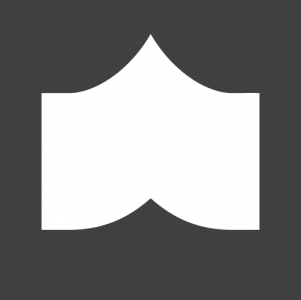Below are the books I read in 2021. Just like previous annual lists I’ve shared (2018, 2019, and 2020), I haven’t included books I didn’t finish due either to time restraints or because they were boring.
I read 19 books this year, which is lower than my average over the past few years. A wife who’s battling cancer, running an elementary school and opening a second, and raising two kids left little spare time, but I’m thankful for the moments I had to read, which was usually late at night.
The titles have been placed in reverse chronological order, so the first book listed is the last book I read this year. I hope there’s one waiting for you that enriches your life and inspires you to face the New Year with knowledge in your head and hope in your heart.
1. The Antisocial Network: The GameStop Short Squeeze and the Ragtag Group of Amateur Traders That Brought Wall Street to Its Knees by Ben Mezrich.
In one sense, the world is changing dramatically. In another, status quo reigns supreme. I’m not sure if this dichotomy was a major theme Mezrich considered while writing The Antisocial Network, but it certainly stood out to me .
2. Shifting the Balance: 6 Ways to Bring the Science of Reading into the Balanced Literacy Classroom by Jan Burkins and Kari Yates.
This is a helpful primer for differentiation in one’s reading instruction.
3. Dead Man’s Walk by Larry McMurtry.
A wonderful novel by Larry McMurtry that’s first chronologically in the Lonesome Dove saga. (It was the third book written.) Not as epic as Lonesome Dove, but what is?
4. This Is How You Lose the Time War by Amal El-Mohtar and and Max Gladstone.
I like the idea of this book, but I found the story impenetrable. I understood just enough to get the gist, but I didn’t fully enjoy the experience because of the constant uncertainty I felt regarding what was occurring on the page.
5. The Coffee Bean: A Simple Lesson to Create Positive Change by Jon Gordon.
A good reminder that we have control over our reactions.
6. The Choice: Embrace the Possible by Edith Eger.
My wife read this after me, and she loved it, which is high praise for this autobiography.
7. Exhalation by Ted Chiang.
The inventive short stories in this collection made me think of technology in a way I never had before, which I appreciate, but a few stories went on too long and lost my interest.
8. Noise: A Flaw in Human Judgment by Daniel Kahneman, Olivier Sibony, and Cass R. Sunstein.
Important ideas in a mediocre book that could have been an insightful article.
9. Freedom by Sebastian Junger.
I’ll read anything by Junger; he opens my eyes to a truth for which I’m thankful.
10. God’s Debris: A Thought Experiement by Scott Adams.
Interesting ideas that are fun to read in an undergrad sort of way.
11. PLC+: Better Decisions and Greater Impact by Design by Douglas Fisher, Nancy Frey, John T. Almarode, Karen T. Flories, and Dave Nagel.
The best thing about books written by Fisher and Frey is the consistency between them. They don’t focus on shiny new ideas and strategies but rather reveal how the same topics can be used within different situations at a school.
12. Beyond Order: 12 More Rules For Life by Jordan B. Peterson.
Peterson’s books are important to read because they remind us of our own personal responsibility in this world.
13. The Bitcoin Standard: The Decentralized Alternative to Central Banking by Saifedean Ammous.
The best argument for why owning Bitcoin is important.
14. Making Sense of Phonics: The Hows and Why’s by Isabel L. Beck.
This pairs well with the book I mentioned above entitled Shifting the Balance.
15. Kings of Crypto: One Startup’s Quest to Take Cryptocurrency Out of Silicon Valley and Onto Wall Street by Jeff John Roberts.
This book documents the genesis of Coinbase, which is a major platform people use to purchase crypto.
16. Connecting with Students Online: Strategies for Remote Teaching & Learning by Jennifer Serravallo.
This was helpful last year during distance learning… Time will tell as to whether the strategies will be needed in the future.
17. Seeking Wisdom: From Darwin To Munger by Peter Bevelin.
The best book I read this year.
18. Bitcoin Billionaires by Ben Mezrich.
A sequel of sorts to The Social Network (AKA The Accidental Billionaires).
19. The Stories of Breece D’J Pancake by Breece D’J Pancake.
A difficult book of short stories with which to begin the year because I found the narratives hard to track. I would love to discuss the stories with someone… Let me know if you ever read the collection.
…
That’s it! I hope you found this list helpful. As always, let me know if you have any questions. Here’s to a great year of reading in 2022!

This is great! Thanks for sharing Steve! You are such an inspiration in so many ways!
Thanks for checking out the post, Darryl! I hope you’re having a great break so far.